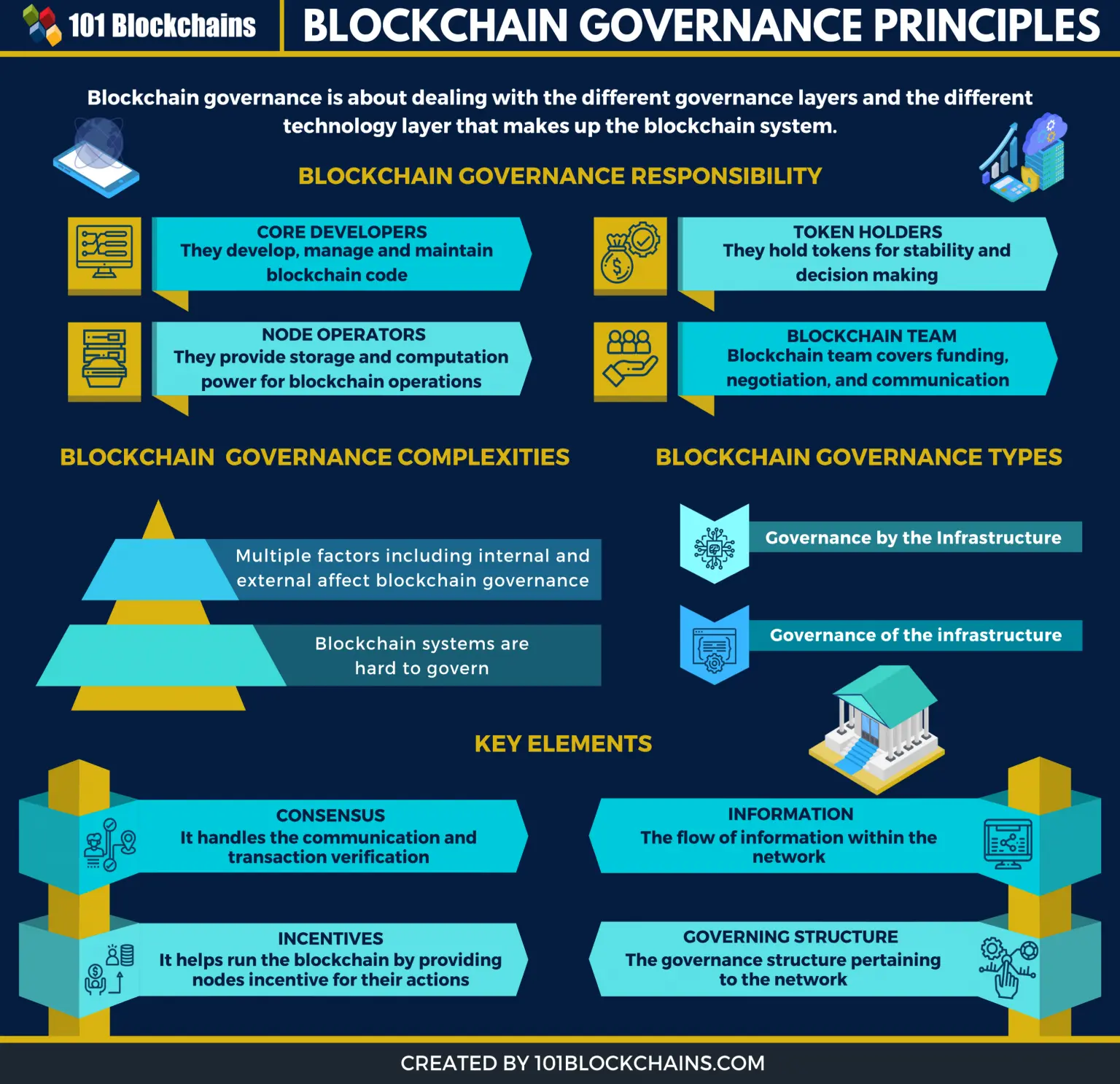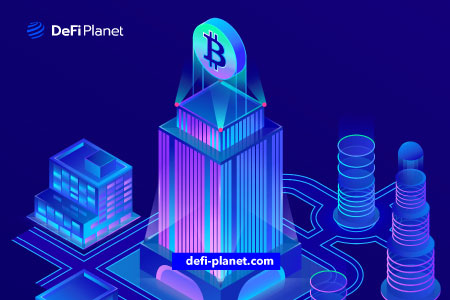Blockchain-based distributed ledgers work by connecting a chain of electronic records, each of which is linked to the one before it. Each new set of entries, or “block,” is completed and time-stamped with a hashtag only after passing through a consensus process.
Proof of Work (PoW) and Proof of Stake (PoS) are the two most common mechanisms for verifying new entries on a blockchain and keeping changes to the network under control. PoS consensus models allow individuals with the largest stake (number of digital currencies) to control a cryptocurrency or commercial blockchain ledger.
The most popular cryptocurrencies, however, such as Bitcoin and Litecoin, have all used PoW as their consensus algorithm. But all that could change soon.
This article explores how blockchain governance will work in the Proof-of-Stake era.
A Brief Overview of Proof-of-Stake (PoS) Consensus.
When using Proof-of-Stake (PoS) consensus mechanism, block and transaction verification require less computational effort. By changing how blocks are confirmed using coin owners’ devices, PoS reduces the amount of computing effort required. The coin owners put up their currencies as collateral in exchange for the chance to validate blocks and become validators.
Validators are chosen at random to verify blocks of information and confirm transactions. Instead of using a competitive system like “Proof-of-Work” to decide who gets paid, this system selects people randomly.
Coin owners must stake a particular amount of coins before becoming validators. For example, to become a validator on Ethereum, a user must stake 32 ETH. When a predetermined number of validators confirm that a block is correct, it is finalized and closed.
Different Proof-of-Stake processes may use a variety of techniques to achieve consensus. When Ethereum adopts sharding, which requires a committee of at least 128 validators, a validator, for example, will confirm the transactions and add them to a shard block.
After shards have been validated and a block has been formed, two-thirds of the validators must agree that the transaction is valid before the block can be closed.
Understanding Blockchain Governance
Decentralization is a key component of blockchain technology. As a result, blockchain governance presents specific difficulties. Because most businesses today use centralized management, managing them is less complicated than managing a decentralized platform, network, or social group.
Because many aspects of blockchain technology are not yet perfect, putting blockchain governance ideas into action may become challenging. Furthermore, blockchain users must adapt to the rapidly evolving ecosystem. However, the ultimate goal, which is to benefit users, doesn’t change; thus, systems evolve to meet this need over time.
Blockchain governance is the process of managing the constantly changing needs and expectations of the blockchain. It entails dealing with the blockchain system’s various technology and governance layers.
Depending on whether it is a framework, application, or network, the blockchain system’s operations must also be addressed. Furthermore, how the internet interacts with that particular blockchain technology determines the system’s rules.
Blockchain is undeniably a nascent technology. Relevant stakeholders all over the world are currently working hard to improve blockchain governance. To ensure mass adoption, every element of blockchains must function perfectly.
Blockchain governance relies on four core communities to address issues rather than just one. These four communities typically oversee blockchain administration, though the number of core communities varies depending on the blockchain.
These communities include:
- Blockchain team
- Core programmers
- Token holders
- Node administrators

Impact of Proof-of-Work (PoW) and Proof-of-Stake (PoS) on Blockchain Governance
Cryptocurrencies refer to transaction logs that are based on distributed ledger technology, like blockchain. In computer systems and blockchains, a consensus method is used to get all of the processes in the system to agree on a single data value or a single network state.
Agents must compete to solve a computational puzzle to update the blockchain under the PoW consensus mechanism.
With PoS, a randomly selected shareholder updates the blockchain, with the probability that their name will be drawn equal to their share or percentage of points. The PoS protocol establishes a simple lottery as the standard for updating the blockchain.
A cryptocurrency is a blockchain-native asset that can be created and settled on the blockchain. Each unit of this cryptocurrency is chosen at random and in the same way at the right time by PoS. The selected unit’s owner is then given the authority to make changes.
Consequently, one’s ability to update the blockchain is inversely correlated with the amount of cryptocurrency one possesses. For example, someone who owns 2% of the cryptocurrency has a 2% probability of sending the following update.
Lotteries are regularly held to prevent a single lottery winner from gaining consolidated control of the blockchain. Nonetheless, in addition to the privilege of updating the blockchain, the lottery winner usually receives a “block reward” of coins in the same cryptocurrency.
The coin payout has a “snowball effect,” increasing the likelihood of future lottery wins for coin owners. As a result, most people believe that only a small number of people will be in charge of governance under the PoS blockchain governance system.
Does Proof-of-Stake Governance Maintain The Long-Term Decentralization of Cryptocurrencies?
Professors Rosu and Saleh used a discrete-time infinite-horizon model to examine several investors who could trade a risky cryptocurrency using units called “coins.” According to the professors’ research, contrary to popular belief, PoS has a long-term tendency to maintain the same level of decentralization.
Rosu and Saleh examined the example of a cryptocurrency with just two coins—one held by Alice and one by Bob—with a potential payout of one coin for each lottery winner. The troubling aspect (according to conventional wisdom) is that Alice has a 50% chance of winning her first lottery. Still, if she wins, her chances of winning the following ones rise to about 67%. Additional wins only increase that likelihood until Alice is practically guaranteed to win every time.
This intuition is wrong, as demonstrated by Rosu and Saleh’s first important discovery: Just as there is a chance that Alice has a streak of wins that brings her close to a 100% holding of coins, there is also an equal likelihood that Alice has a streak of losses that brings her close to a 0% holding of coins.
For instance, two consecutive victories would boost her coin share to 75%, and two successive losses would reduce it to 25%. After two straight victories, Alice has a 75% chance of winning the next lottery, in which case her share will rise to 80%; but, if she loses (with a 25% probability), her portion will fall to 50%.
According to Rosu and Saleh, Alice does have a good chance (75%) of becoming even richer (with an 80% share) in a situation in which she starts as “rich” (with a 75% share), but the share gain in this fortunate scenario is very marginal (5%). She still has a 25% chance of losing the lottery, in which case her 15% share loss (from 75% to 50%) would be substantially greater than the 5% gain in the fortunate situation.
Generally speaking, the possibility of a person’s coin share decreasing outweighs the possibility of it increasing. Rosu and Saleh prove that each owner’s coin share is what is known as a “martingale” or a “fair game” in probability research.
Another important finding by Rosu and Saleh is that trading a PoS cryptocurrency does not incentivize investors to accumulate coins to boost their chances of earning even more coins (or having more power) in the future.
Coin purchases do boost an investor’s chances of winning a subsequent lottery. The block reward from the lottery will increase the supply of existing coins, diluting the value of any coins that are still in circulation.
Rosu and Saleh show that investors are not forced to trade their way to considerable cryptocurrency holdings by demonstrating that the dilution effect exactly balances the probability increase in equilibrium.
In Conclusion,
- In the absence of a centralized authority, decentralized networks and platforms rely on ever-evolving governance systems to ensure the longevity and general real-world application of their projects.
- Blockchain governance frequently employs mechanisms to determine project direction and ongoing updates, as well as to ensure that the underlying protocol and ecosystem function properly.
- The two types of blockchain governance systems are on-chain, where stakeholders vote with their native currency to directly alter the blockchain, and off-chain, which consists of open discussion, suggestions, and updates that are all agreed upon.
- While both PoW and PoS have advantages, switching from one to the other would undoubtedly be considered a hard fork on any present blockchain and could have significant repercussions for those who have already invested. However, in order to improve speed, scalability, and efficiency, the industry may need to change course someday.
If you would like to read more articles like this, visit DeFi Planet and follow us on Twitter, LinkedIn, Facebook, and Instagram.
“Take control of your crypto portfolio with MARKETS PRO, DeFi Planet’s suite of analytics tools.”





















